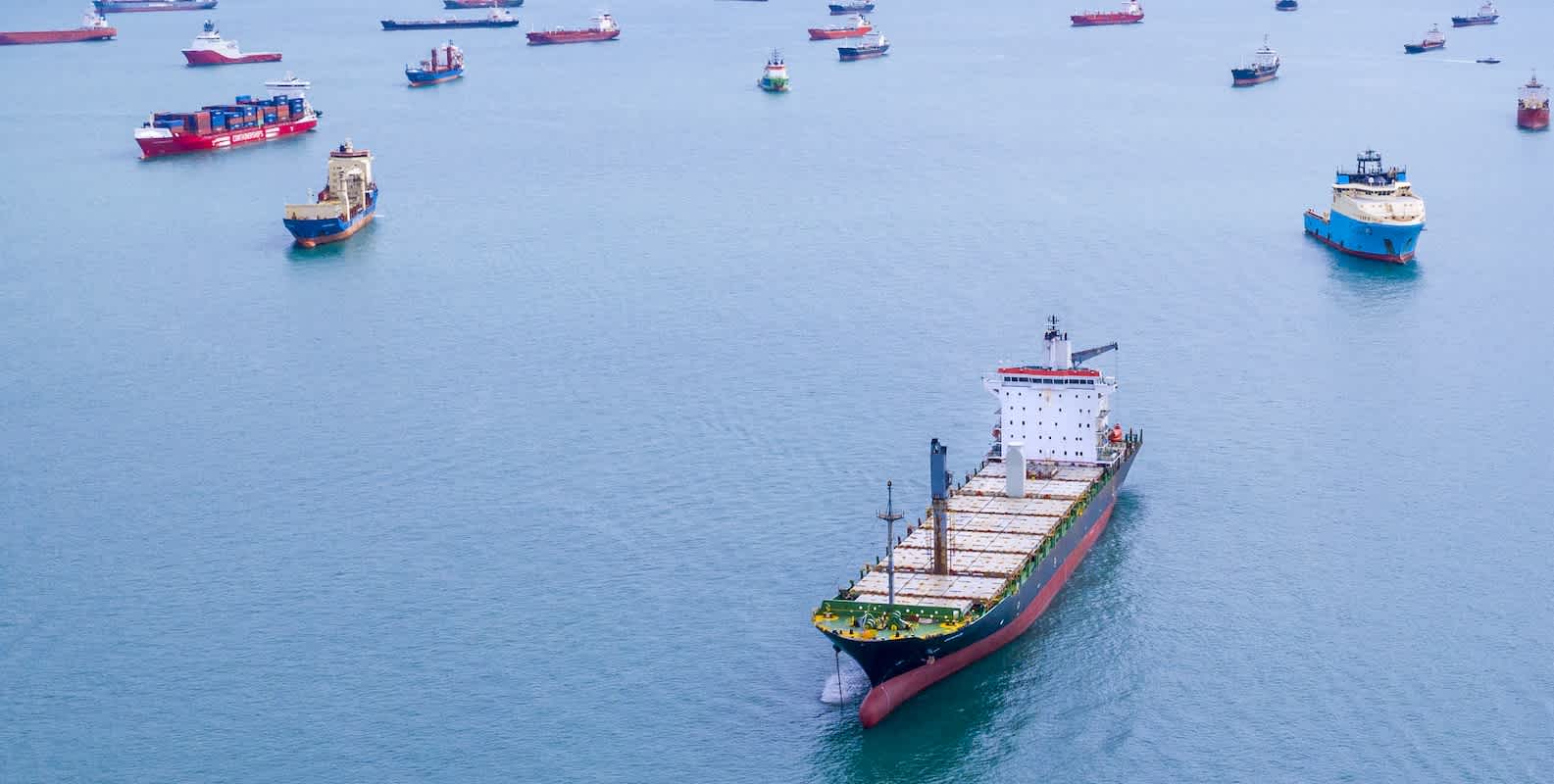Market Update
Freight Market Update: August 15, 2024
Updates from the global supply chain and logistics world | August 15, 2024
Freight Market Update: August 15, 2024
Trends to Watch
[Update on Canada Railroad Labor Negotiations]
- The potential work stoppage or lockout deadline has been extended to August 22, following a pair of rulings on August 9 by the Canada Industrial Relations Board (CIRB) that determined a work stoppage would pose no “serious danger” to public health or safety.
- In the ruling, the CIRB ordered a 13-day cooling-off period (August 9 to August 22). Once this period concludes, a nationwide lockout or strike may break out in the absence of a settlement.
- The dispute involved close to 10,000 workers represented by the Teamsters labor union, at the Canadian National Railway Company (CN) and Canadian Pacific Kansas City Limited (CPKC). It entailed issues related to working conditions, wages, and fatigue management.
- Canadian railways transported half of the country’s exports in 2022, totaling more than $276 billion dollars’ worth of goods, according to the Railway Association of Canada.
- Significant impacts may be felt across a wide range of industries, including the agriculture sector, an industry that relies heavily on rail to transport goods.
- CN update: “Unless there is immediate and meaningful progress at the negotiating table or binding arbitration, CN will have no choice but to begin a phased and progressive shutdown of its network, starting with embargoes of hazardous goods, which would culminate in a lockout at 00:01 Eastern Time on August 22nd,” according to the notice.
[Ocean - TPEB]
- Volumes remain strong, exceeding last year’s numbers on the Transpacific route. We’re seeing structurally blank sailings due to Cape of Good Hope (COGH) routings and port congestion in Asia and North America. Due to weather conditions around the COGH, please expect further delays and capacity challenges en route to the U.S. East Coast (EC).
- Since extra loader (XL) space was injected into the Transpacific trade lane, we’ve seen less space pressure on the U.S. West Coast (WC), specifically the Pacific Southwest (PSW), from China’s main ports.
- A positive note: water levels at the Gatun Lake in Panama have recovered, and local authorities have softened the Panama Canal’s weight restrictions.
- Floating rates: Spot rates stabilized in the first half of August due to the General Rate Increase (GRI) announcement for the second half of the month. At this point, we see no signs of a rate mitigation or extension.
- Fixed rates: Peak Season Surcharge (PSS) discussions are very intense at the moment, as the gap between FAK and NAC rates do not support mitigations, specifically in light of a potential GRI in August.
[Ocean - FEWB]
- Blank sailings and vessel slide-downs will continuously impact available capacity in the market through September. Two more void plans will be announced by THE Alliance during China’s Golden Week in October.
- Floating rates have started dropping for 2H August, but amid blank sailings and extra loaders, rates remain on the higher side.
- Long-term named account business is still restricted by carriers for space and equipment priority.
- Equipment shortages have ceased a bit since May and June. For some port of loadings (POLs) with less direct calling, we still foresee potential equipment shortages for certain container types, such as 20’GPs and 45’HCs.
[Ocean - TAWB]
- CMA CGM announced a Rate Restoration Initiative 6 (RRI06) from the East Mediterranean, effective September 1, as well as a Peak Season Surcharge (PSS02) from the East Mediterranean and West Mediterranean, effective 15th of September. MSC is considering implementing similar measures.
- In North Europe, carriers have already announced PSSs, RRIs, and GRIs. It seems they are in position to implement them, but these changes remain under negotiation.
- Amid the summer slack season, we see no big issues when it comes to USEC space. USWC, on the other hand, is suffering from some space problems.
- No equipment problems in Mediterranean / Northern Europe.
[Air - Global] Air Freight Update Mon 29 Jul - Sun 04 Aug 2024 (Week 31)(Source: WorldACD)
- Year-on-Year Growth: In July 2024, average worldwide air cargo rates and tonnages increased by +12% year on year, the highest monthly YoY rate increase so far this year. Rates rose to $2.50 per kilo (+44% higher than July of 2019).
- Regional rate increases: Spot rates from the APAC region to the U.S. rose significantly, averaging $5.80 per kilo in July 2024. This marks a +70% increase since July of 2023.
- Weekly analysis: In week 31 (29 July to 4 August), average worldwide rates remained stable at $2.49 per kilo—+12% higher than the same week last year. Rates from Middle Eastern and South Asian origins were up by +55% YoY, while Asia-Pacific origins saw a +22% increase.
- Bi-weekly trends: Over weeks 30 and 31 (combined), tonnages and rates decreased slightly by -1% compared to the previous two weeks (2Wo2W). However, they remained up by +9% and +12% YoY, respectively, driven by traffic from Asia-Pacific and MESA origins. Capacity increased by just +3% YoY.
- Bangladesh market conditions: Despite political and logistical disruptions, air cargo tonnages from Bangladesh to Europe rebounded in week 31 to levels seen in weeks 25-28, though they still fall below levels from the same period last year. Spot rates from Bangladesh to Europe reached $4.87 per kilo in week 31—the highest this year, and nearly three times (+173%) the rate in the same week of 2023.
Please reach out to your account representative for details on any impacts to your shipments.
North America Vessel Dwell Times

Webinars
North America Freight Market Update Live
Thursday, September 12 @ 9:00 am PT / 12:00 pm ET
Flexport Ocean Timeliness Indicator
Ocean Timeliness Indicator maintains its downward trend for China to the U.S. West Coast while China to the U.S. East Coast and China to Europe recover.
Week to August 12, 2024
This week, the Ocean Timeliness Indicator for China to the U.S. East Coast and China to Northern Europe increased from 58 to 58.5 days and 68 to 69 days, respectively. Meanwhile, China to the U.S. West Coast continued its descent for the fourth week in a row, falling from 38 to 37.5 days.

Please direct questions about the Flexport OTI to press@flexport.com.
See the full report and read about our methodology here.
The contents of this report are made available for informational purposes only. Flexport does not guarantee, represent, or warrant any of the contents of this report because they are based on our current beliefs, expectations, and assumptions, about which there can be no assurance due to various anticipated and unanticipated events that may occur. Neither Flexport nor its advisors or affiliates shall be liable for any losses that arise in any way due to the reliance on the contents contained in this report.
Related Content

Sign Up for Global Logistics Update
Why search for updates when we can send them to you?




